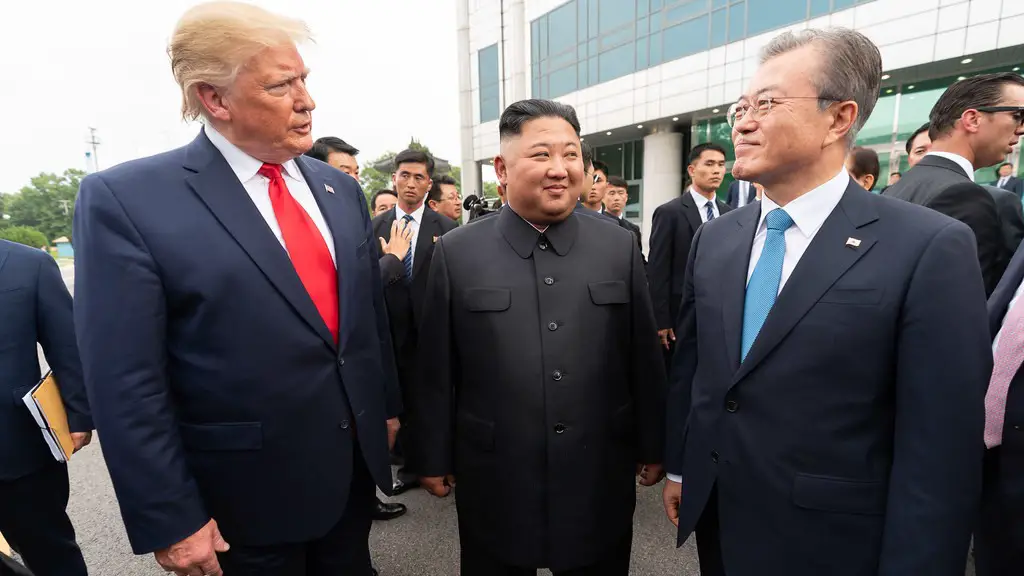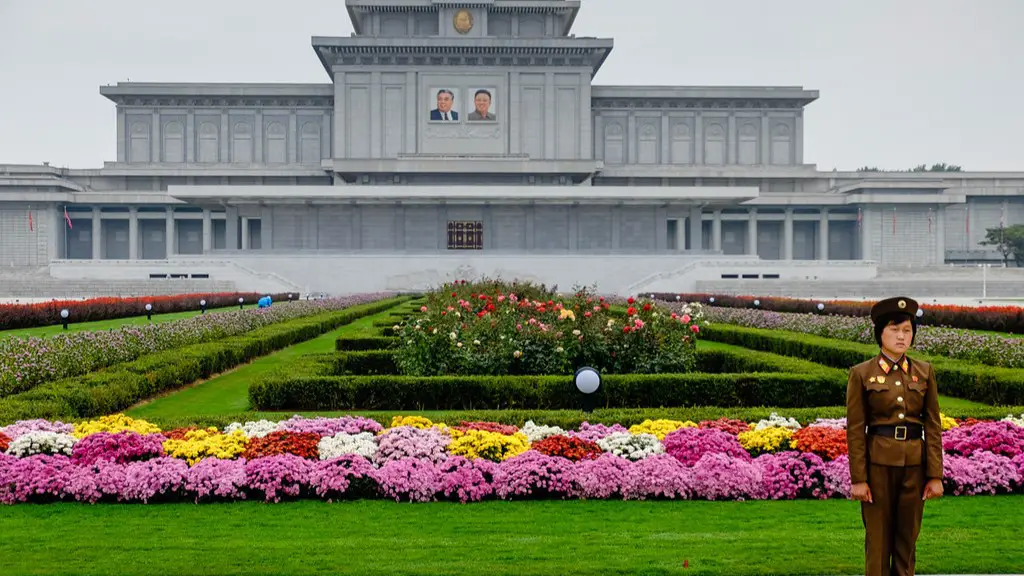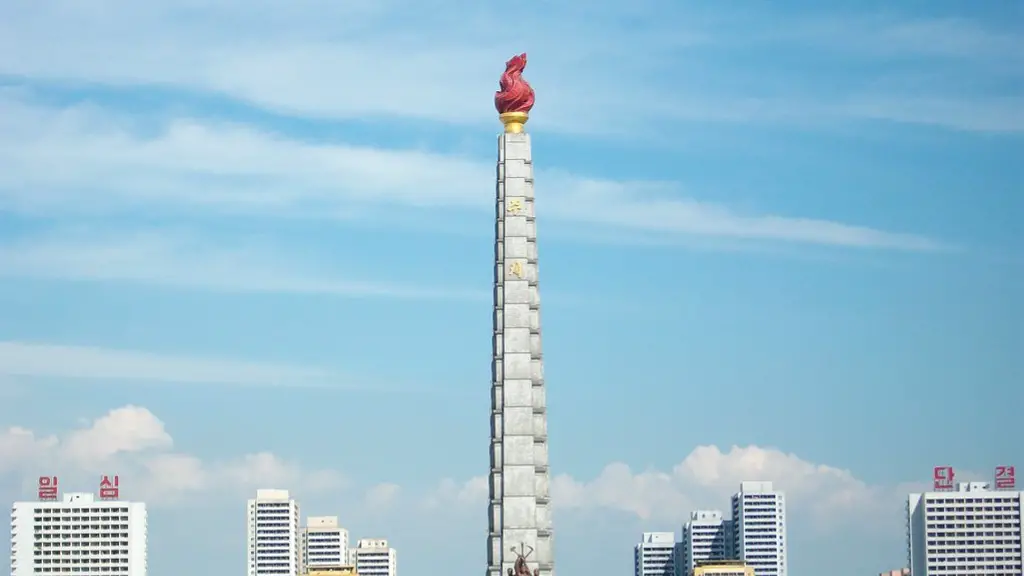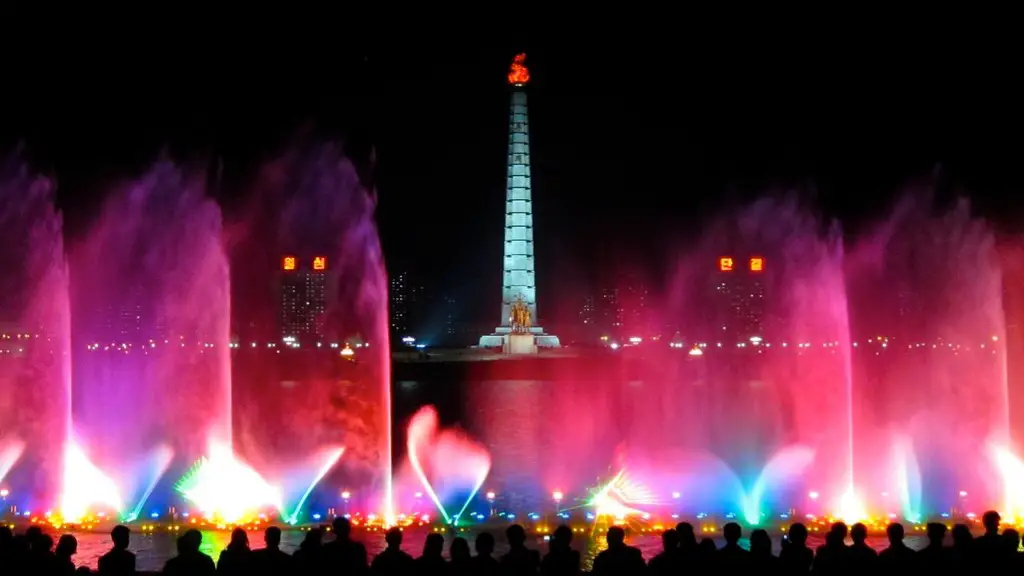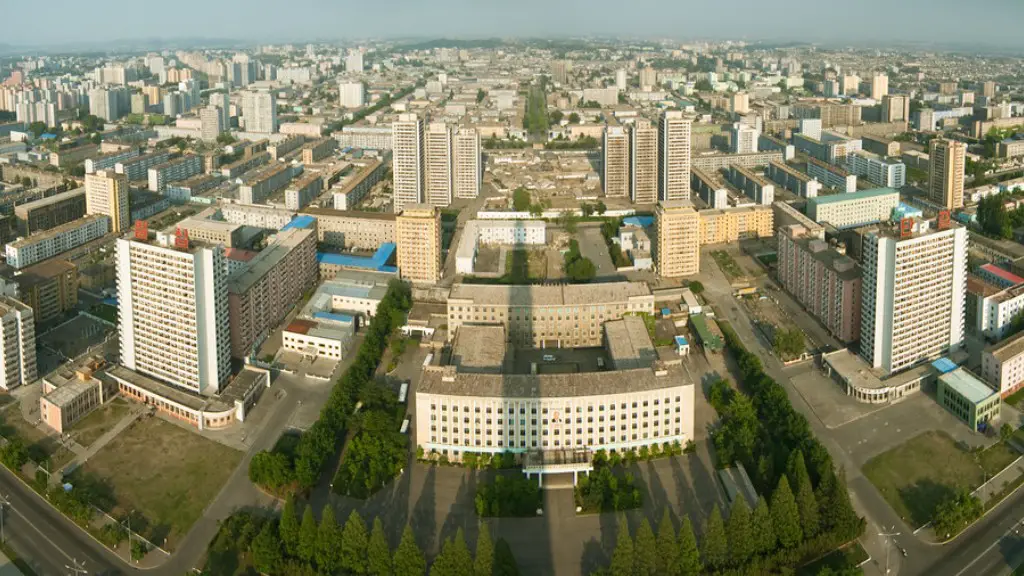In recent times, North Korea has become subject to more attention than ever, as tensions between its leadership and world powers have ratcheted up. Yet, although the world knows very little about the notoriously secretive country, North Korea has various commercial relationships with a number of nations and entities, ranging from tourism and direct foreign investment to sanctions-busting smuggling. As such, these relationships are vital to understanding how North Korea operates and functions.
Currently, the most extensive commercial relationship for North Korea is its association with China, the country’s closest and most influential ally. According to United Nations data, China currently accounts for some 90 percent of North Korea’s total trade, handling over 6 billion dollars worth of imports and exports to and from the country. Among other items, the Chinese sell fuel, food, and a host of other consumer goods to Pyongyang. At present, North Korea is heavily reliant upon these imports, with the countries’ agricultural sector entering into crisis due to limited access to modern farming equipment and fertilizers.
Several smaller nations and entities also have ongoing commercial ties with North Korea, although these have diminished somewhat over the past several years. Examples include India, which maintained a small trade relationship with North Korea prior to 2015, and the United Arab Emirates, which have been accused of helping North Korean traders get access to the international banking system since at least the year 2011. North Korean traders also occasionally skirt United Nations sanctions by using networks of criminal middlemen to smuggle goods into Chinese territory, where consumers can buy them for higher prices.
To date, a number of Western companies have considered doing business with North Korea, but most have ultimately decided against it due to the considerable risk and uncertainty associated with doing so. One exception is the Singapore-based startup Glovis, which in 2018 agreed to open a logistics office in the country in order to provide its services to foreign companies. Also in 2018, the Irish-Spanish developer Isolux Corsan announced an agreement to import energy from North Korea to the South for use in South Korea’s power plants.
For the most part, the North Korean government has yet to make any big moves to attract foreign investment and businesses, despite initiatives here and there to do so. It recently announced a special economic zone list with distinctive incentives in hopes of attracting foreign investment—however, that plan has yet to move beyond the planning stages. Furthermore, the international sanctions currently imposed on North Korea make doing business in the country explicitly illegal for Western companies, rendering any potential advantage moot.
Generally speaking, the North Korean economy has been shrinking over the past several years due to a combination of factors, including economic sanctions and poor economic policies. The country does maintain a few import and export activities, but these remain limited and for the most part do not generate large amounts of revenue or growth. For example, its two major export items—textiles and coal—have been subject to regulations from the UN Security Council and are largely restricted from international export.
North Korea is not only subject to economic sanctions, but is also subject to strict sanctions against products containing materials from the United States in particular. Since 2017, the government has been focusing its business and trade deals with China and has had difficulty finding other partners. This has likely hampered North Korea’s ability to generate revenue and engage in international commerce.
Tourism as an Economic Option
Tourism has been and still is a major source of income for North Korea, and one of the few ways foreign investors have been able to engage in some type of business with the country. Currently, the tourism industry is said to be the third largest source of foreign currency after exports of coal and textiles, and around 100,000 foreign tourists are said to have visited North Korea, mostly from China and other Asian countries.
For many Western tourists, even getting to North Korea involves considerable risk and unpredictability. Visas are mandated for traveling to North Korea, and the country’s border remains a closely guarded entity. Even if a western tourist obtains clearance and permission to enter, there are still additional concerns about personal safety in the heavily policed and militarized state.
New businesses involving tourism have also begun popping up in North Korea, such as specialized tour operators, restaurants, and private transportation companies. These companies are sharing in the profits generated by tourism, but they remain heavily restricted and subject to government regulations. While opportunities for investment in tourism in North Korea still remain limited, the industry continues to provide a way for foreign companies to access the country and form economic ties.
Increasing Rapprochement With South Korea
The relationship between North and South Korea has been mired in tension for decades, but in recent years, progress towards rapprochement and a more cooperative relationship has been made. The two countries held three summits in 2018, resulting in agreements on inter-Korean cooperation, military defusing, and economic exchange.
In terms of the potential for economic exchange, such a process presents an opportunity for companies on both sides, including South Korean corporate giants such as Samsung and Hyundai, to potentially tap into North Korean markets. South Korean businesses and governments have already began initiating new joint projects, including the construction of a factory park in North Korea’s Hwanggumpyong special economic zone. Once successfully completed, this project is expected to create thousands of jobs and generate international investment.
The United States also appear to finally be moving towards creating a permit procedure to allow US companies to do business in North Korea. It is yet to be seen what kind of economic activity such policies would generate, but it is certain that future business ties between the two countries would present enormous opportunities for both sides.
Political Risks
Doing business with North Korea involves a considerable amount of risk and uncertainty, given the current political climate and the fact that there is no legal protection from the government for foreign investors. This is emphasised by the fact that North Korea is known for its unpredictable and hostile attitude towards foreign citizens and businesses. Any investment can be seized by the state without warning, leaving investors with little to no recourse.
The political risks of doing business in North Korea are significant. North Korea has longstanding territorial disputes with both South Korea and Japan, while relations between North Korea and the United States have deteriorated in recent years. Any one of the countries could take action against companies operating in the country, leaving investors exposed.
Furthermore, North Korea has an opaque and unpredictable financial system, which makes it difficult to accurately estimate potential returns. Any investment in North Korea carries with it the risk of being subject to capital controls or sanctions, or inflicted with financial losses due to disputes between foreign investors and the North Korean government.
International Reputation
Though doing business with North Korea may present certain advantages and opportunities, this kind of investment is highly controversial. Countries that do engage in economic ties with North Korea are subject to reputational risks, as the international community is increasingly becoming aware of the nature of the North Korean regime and its actions, though the effectiveness of economic sanctions on North Korea remain questioned.
Furthermore, it has become increasingly difficult for companies to engage with North Korea due to a global increase in scrutiny on companies conducting such dealings. This has significantly increased the risk of investing in North Korea, with investors having to worry about potential reputational damage and potential legal action.
Finally, North Korean reliance on foreign financing—particularly from China and South Korea—has been increasingly used by the international community as leverages to pressure the government into ending its nuclear weapons programmes and human rights abuses. Any foreign companies engaging with North Korea are likely to be faced with intense scrutiny and criticism, regardless of the nature of their investments.
Final Thoughts
In spite of the risks and challenges associated with doing business in North Korea, there is still some appetite for foreign investment in the country, though it has been largely tempered in recent years due to the unpredictable nature of doing business in the hermit state.
North Korea is a highly secretive and authoritarian state, and so it can be difficult for foreigners to make an informed decision about whether or not to invest in the country. Knowing the risks involved and weighing them carefully is essential for companies considering any kind of economic activity with North Korea in order to make the most out of the opportunities it may offer.

